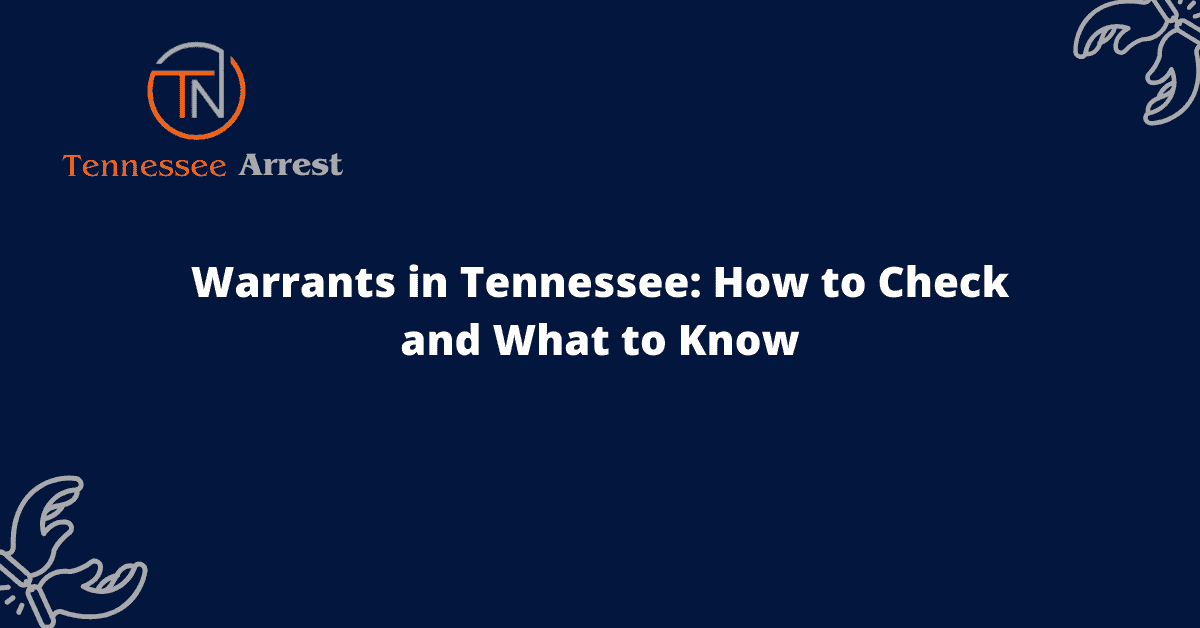

When it comes to warrants in Tennessee, it’s important to know the process of checking and understanding what it means for you. Whether you’re concerned about a potential warrant for your arrest or simply want to stay informed about the legal system, this guide will provide you with the necessary information.
In Tennessee, warrants are issued by a judge or magistrate when there is probable cause to believe that a crime has been committed. This means that law enforcement officials must present evidence to the judge or magistrate, who will then determine if there is enough evidence to issue a warrant. Warrants can be issued for various reasons, including but not limited to, failure to appear in court, unpaid fines, or suspicion of involvement in a crime.
When it comes to warrants in Tennessee, it’s important to know the process of checking and understanding what it means for you. Whether you’re concerned about a potential warrant for your arrest or simply want to stay informed about the legal system, this guide will provide you with the necessary information.
In Tennessee, warrants are issued by a judge or magistrate when there is probable cause to believe that a crime has been committed. This means that law enforcement officials must present evidence to the judge or magistrate, who will then determine if there is enough evidence to issue a warrant.
Warrants can be issued for various reasons, including but not limited to, failure to appear in court, unpaid fines, or suspicion of involvement in a crime. If you have failed to appear in court for a scheduled hearing or have outstanding fines, there is a possibility that a warrant may be issued for your arrest.
If you are concerned about the possibility of a warrant being issued for your arrest, it is important to know how to check for warrants. In Tennessee, you can contact your local law enforcement agency or court clerk’s office to inquire about any active warrants in your name. They will be able to provide you with the necessary information and guide you through the process.
Having a warrant issued against you can have serious implications. If a warrant is issued for your arrest, law enforcement officials have the authority to apprehend you and bring you before the court. It is important to take warrant issues seriously and address them as soon as possible to avoid further legal complications.
Staying informed about the legal system in Tennessee is crucial to understanding warrants and their implications. By familiarizing yourself with the process of issuing warrants and the reasons behind them, you can better navigate the legal system and make informed decisions regarding your legal matters.
Warrants in Tennessee are legal documents issued by a judge that give law enforcement officers the authority to arrest or search individuals or property. They are typically issued when there is probable cause to believe that a crime has been committed.
To check if there is a warrant out for your arrest in Tennessee, you can contact the local law enforcement agency or the court clerk’s office in the county where you believe the warrant may have been issued. They will be able to provide you with information on any active warrants.
When checking for a warrant in Tennessee, you will typically need to provide your full name, date of birth, and possibly your social security number. This information helps the authorities accurately identify you and determine if there are any warrants associated with your name.
Yes, if there is an active warrant for your arrest in Tennessee, law enforcement officers in other states have the authority to arrest you and extradite you back to Tennessee. Warrants are not limited to the state in which they were issued.
If you have an active warrant in Tennessee, it is recommended that you consult with an attorney as soon as possible. They can provide guidance on how to best handle the situation and may be able to help you resolve the warrant in a favorable manner.
Having a warrant in Tennessee can lead to various consequences, including arrest, imprisonment, fines, and a permanent criminal record. It is important to address warrants promptly to minimize the potential negative impact on your life.